Today SevenPonds speaks with Frank Ostaseski, an internationally respected Buddhist teacher, cofounder of the Zen Hospice Project, and founder of the Metta Institute. Frank has lectured at Harvard Medical School, the Mayo Clinic, and Wisdom.2.0, and teaches at major spiritual centers around the globe. He is also the 2018 recipient of the prestigious Humanities Award from the American Academy of Hospice and Palliative Medicine.
Frank Ostaseski’s groundbreaking work has been featured on the Bill Moyers PBS series “On Our Own Terms,” highlighted on “The Oprah Winfrey Show,” and honored by H.H. the Dalai Lama. He is the author of “The Five Invitations: Discovering What Death Can Teach Us About Living Fully.”
Editor’s Note: This interview has been edited for length and readability.
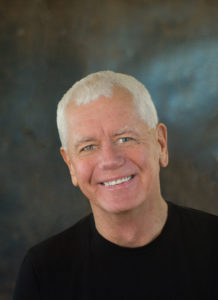
Frank Ostaseski
Kathleen Clohessy: Thank you so much for speaking with me today, Frank. Can we start out with you telling us how you came up with the five invitations that are the basis for your book?
Frank Ostaseski: “The Five Invitations” are my attempt to honor the lessons I have learned sitting bedside with so many dying patients. They are five mutually supportive principles, permeated with love. They have served me as reliable guides for coping with death. And, as it turns out, they are equally relevant guides to living a life of integrity.
I think of these as five bottomless practices that need to be lived into and realized through action.
An invitation is usually thought of as a request to participate in a particular event. The event is your life, and my book is an invitation for you to be fully present for every aspect of it.
Kathleen: What inspired you to write this book now?
Frank: The writing grew out of my work as the founder of the Metta Institute and cofounder of the Zen Hospice Project, the first Buddhist hospice in America. Both organizations were a fusion of spiritual insight and practical social action. My aim has been to reclaim the soul in caregiving and restore a life-affirming relationship to dying.
Our society is more open to discussing death today. However, the predominant view is still that dying is a medical event and that the most we can hope for is to make the best of a bad situation. I have witnessed the pain of people going to their deaths feeling themselves to be victims of circumstance, suffering ill consequences because of factors that were beyond their control, or worse yet, believing that they were the sole cause of their problems. As a result, too many people die in distress, guilt and fear.
I thought that in writing the book I could do something about that.
Kathleen: As I understand it, you believe that dying isn’t something we prepare for in the last months or weeks or even years of our lives, but something we need to be conscious of throughout our lives. Can you explain why that’s true? What does awareness of death teach us about life?
Frank: In the light of dying, it’s easy to distinguish what leads us toward wholeness, and what inclines us toward separation and suffering. Without an awareness of death, we tend to take life for granted, often becoming lost in endless pursuits of self-gratification. When we keep death at our fingertips, it reminds us not to hold on to life too tightly. We take ourselves and our ideas a little less seriously. We let go a little more easily. When we recognize that death comes to everyone, we appreciate that we are all in the boat together. This helps us to become a bit kinder and gentler with one another.
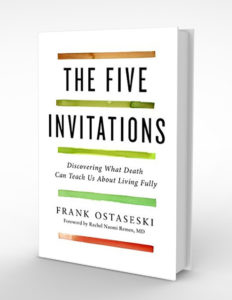 We can harness the awareness of death to appreciate the fact that we are alive, to encourage self-exploration, to clarify our values, to find meaning and to generate positive action. It is the impermanence of life that gives us perspective. The habits of our lives have a powerful momentum that propel us toward the moment of our death. The obvious question arises: What habits do we want to create?
We can harness the awareness of death to appreciate the fact that we are alive, to encourage self-exploration, to clarify our values, to find meaning and to generate positive action. It is the impermanence of life that gives us perspective. The habits of our lives have a powerful momentum that propel us toward the moment of our death. The obvious question arises: What habits do we want to create?
Death is a good companion on the road to living well and dying without regret.
Kathleen: One of the things you say in your book is that the idea of a “Good Death” is largely a myth — that while death can be transformative, “Very few people walk toward the immense challenge of dying and find peace and beauty there.” Can you expand on that a bit?
Frank: In my experience, the romantic expectation of a “good death” can place an immense and unnecessary burden on people who are dying. It’s up to them to do it well.
It is important to examine and improve the systems and conditions in which people die. Let’s make them “good” so people can die in a way that best suits them. Studies show that approximately 80 percent of Americans prefer to die at home. Despite this, 60 percent of Americans die in acute care hospitals, 20 percent in nursing homes and only 20 percent at home. A minority of deaths occur in hospice care, and the average length of stay is only 22 days.
Medical technology has dramatically altered the dying experience. The idea of a “natural death” is slowly vanishing from our culture, having been replaced by a more antiseptic, institutionalized death managed by medical professionals. There are wonderful benefits to modern treatments and interventions, and remarkably dedicated people delivering that care. However, there are also serious drawbacks. Witness the advances in life support, where the line between who is alive and who is dead has become increasingly hazy.
Let’s stop putting pressure on people to “die a good death” and instead fix our health care system so that people can have “good” supportive conditions and appropriate care. When folks are dying they need intensive care—intensive love, intensive compassion and intensive presence.
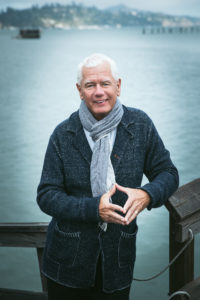 Kathleen: You spend some time in the book talking about hope. In my experience, many people in the “death positive” community today tend to confound hope with the desire to avoid or “defeat” death. But you see hope differently. Can you talk about that?
Kathleen: You spend some time in the book talking about hope. In my experience, many people in the “death positive” community today tend to confound hope with the desire to avoid or “defeat” death. But you see hope differently. Can you talk about that?
There is a buoyancy in hope that is a basic human need.
To discern the real value of hope, we must draw a line between hope and expectation. Our usual kind of hope is little more than wishful thinking. It becomes object-focused. It’s frequently tied to an almost childlike belief, sometimes even blind faith, that an external agency or authority will bring about what we desire. Driven by our preference for a different set of conditions, this conventional view of hope is a rejection of what is present in the here and now. It is the flipside of fear. It takes us outside of ourselves.
We need to rework our understanding of hope. I speak about mature hope, a hope that takes us inside ourselves and toward finding the good in the experience.
Mature hope requires both a clear intention and a simultaneous letting go. This hope is not dependent upon outcome. In fact, hope is tied to uncertainty because we never know what will happen next. The hope is in the potential for our wise and compassionate response, not in things turning out a particular way. It is an orientation of the heart, a trust of our basic human goodness. That trust guides our actions and allows us to cooperate with others and to persevere, without attachment to a specific result. In illness, mature hope helps us come to a place of wholeness, even if a cure is unavailable.
This concludes the first part of our interview with Frank Ostaseski. Please join us next week to learn more about how embracing our humanness can help lead us towards more fulfilling lives and less regret-filled deaths.

 What Can Awareness of Death Teach Us About Life?
What Can Awareness of Death Teach Us About Life?

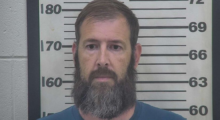
 Funeral Home Owner Chris Johnson Spending Halloween in Jail
Funeral Home Owner Chris Johnson Spending Halloween in Jail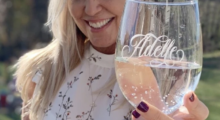
 Our Monthly Tip: Toast a Loved One with a Personalized Glass
Our Monthly Tip: Toast a Loved One with a Personalized Glass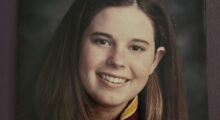
 My Cousin’s Death Taught Me the Meaning of Life
My Cousin’s Death Taught Me the Meaning of Life















Great interview! Waiting for more! By the way, I think it tells a lot, who draws what conclusions from the perspective of imminent death. Mr Ostaseski obviously is a good and active man, that’s why inevitability of death makes him more kind. But I know couple of people in whom the same inevitability of death awakens depressing sense of purposelessness of life. I also remember some I’ve read some gangsters justify killing with ‘everyone’s gonna die anyway’. So in the end it’s all about what is in us, I think.
Report this comment
What a pleasure to read this interview. Mr. Ostaseski’s explanation of death positive was spot on. I agree it is a childlike belief. It’s those at the bedside like him who are helping us redefine words, how to view and accept death. I’m greatly looking forward to reading his book.
Report this comment